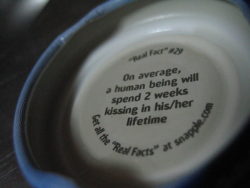
In this age of stunning disinformation, especially about COVID-19 and … um … politics, don’t we need all the help we can get to sort facts and truth from B.S.?
This is a quick note to tell you about two books I think can help with this challenge.
From a journalism professor
The following two books were recommended to me by Lyn Millner, MFA, Professor in the Department of Communication & Philosophy at Florida Gulf Coast University. These books are on her desk at all times, she said, ready for reference to help her students. She is also the author of The Allure of Immortality: An American Cult, a Florida Swamp, and a Renegade Prophet, University Press of Florida, 2015.
First: un•Spun
un•Spun: finding facts in a world of [disinformation] (185 pages) by Brooks Jackson and Kathleen Hall Jamieson with original cartoons by Pulitzer Prize winner Signe Wilkinson.
From the overview on B&N: (also sold at Amazon)
“The founders of FactCheck.org teach you how to identify and debunk spin, hype, and fake news in this essential guide to informed citizenship in an age of misinformation.
Americans are bombarded daily with mixed messages, half-truths, misleading statements, and out-and-out fabrications masquerading as facts. The news media is often too intimidated, too partisan, or too overworked to keep up with these deceptions.
unSpun is the secret decoder ring for the twenty-first-century world of disinformation. Written by Brooks Jackson and Kathleen Hall Jamieson, the founders of the acclaimed website FactCheck.org,unSpun reveals the secrets of separating facts from disinformation, such as:
• the warning signs of spin
• common tricks used to deceive the public
• how to find trustworthy and objective sources of information”
Second: The Art of Making Sense
The Art of Making Sense: A Guide to Logical Thinking (330 pages) by Lionel Ruby. (hardcover on Amazon is cheaper than paperback! I didn’t see it on B&N).
I especially appreciate Ruby’s work because in college I studied Symbolic Logic and took a variety of philosophy classes which helped me recognize and question assumptions made in arguments and in statements of belief.
From the cover’s flap:
“‘Why should I read a book about logic?'” That’s a good question. If you already know how to think clearly, then of course you do not need this book. But surely you have friends who would benefit from it: people who like to argue without knowing what they are talking about, or some relative who is a pushover for any plausible salesman and who heads all the best sucker lists.”
Happy fact-checking (and kissing!) Did you take a good look at the featured photo?
Thanks for reading.
NEXT WEEK’S POST: About wonder, including nature photos from our world travels.
Your writer on the wing,
Charlene







Peggy Lantz
I have some friends, maybe even some family members, maybe even me, who need to read unSpun. Thanks.
Charlene
Thanks for reading.
Steve
The [legit] news media is often … too overworked to keep up with these deceptions. It’s all about the Fire hose of Falsehoods. See Rand dot org /pubs/perspectives/PE198.html
Charlene
Thanks!